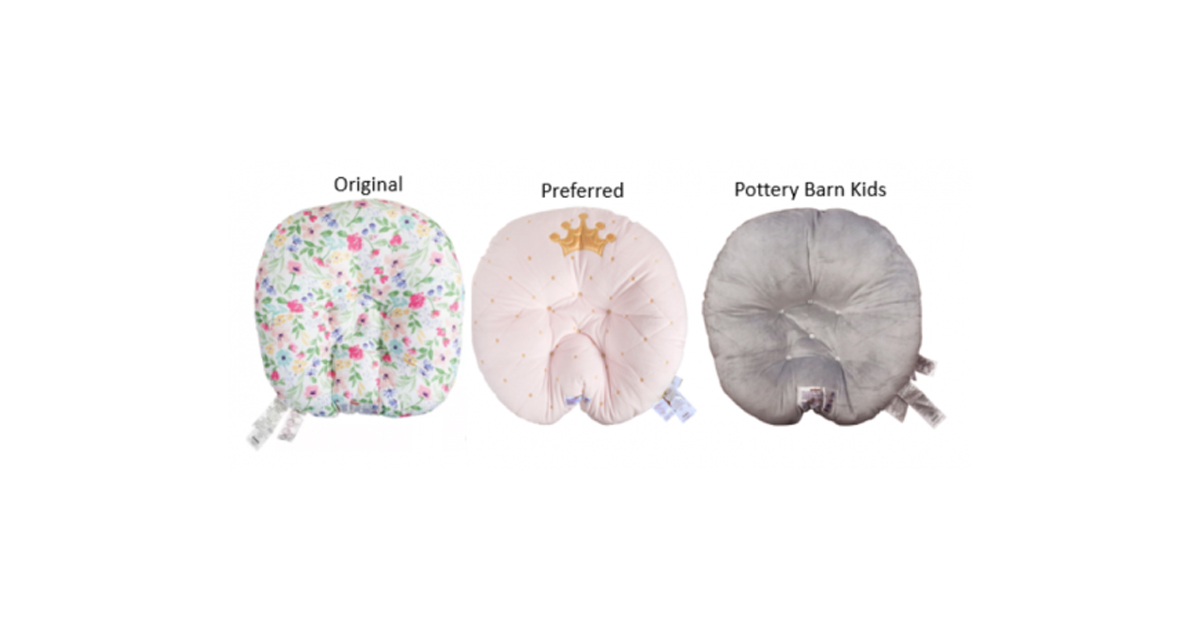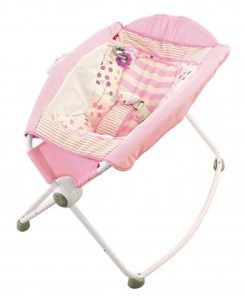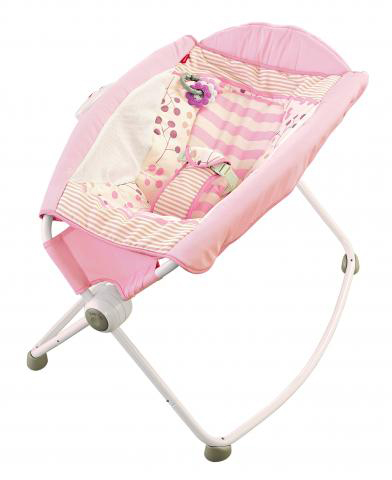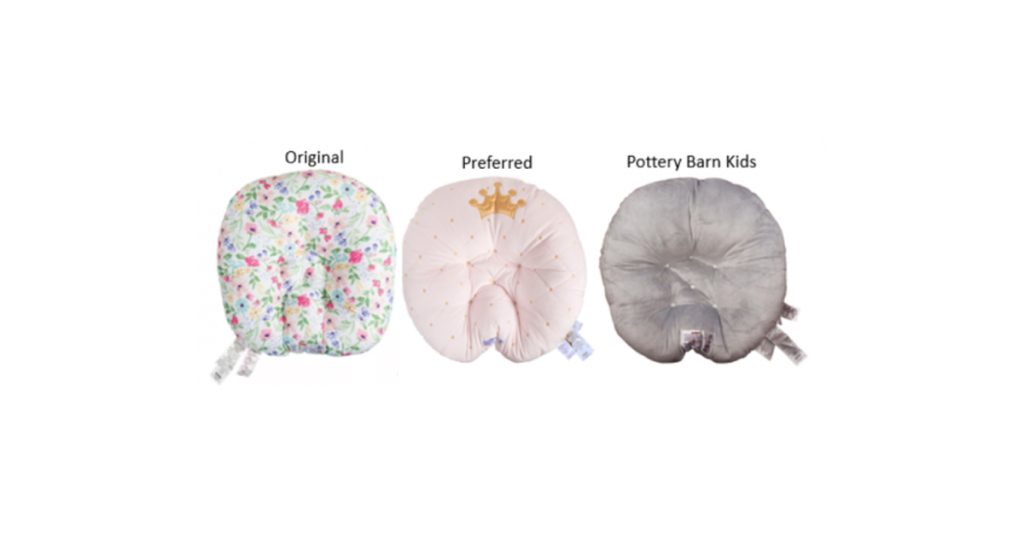Posts Tagged ‘“product liability attorney”’
The Boppy Company Recalls 3.3 Million Newborn Loungers Linked to Deaths
 The Boppy Company has now recalled 3.3 million newborn loungers after the deaths of 8 infants. The U.S. Consumer Product Safety Commission (CPSC) and The Boppy Company announced the recall on September 23, 2021. Parents are urged to immediately stop using these products and to remove them from their homes.
The Boppy Company has now recalled 3.3 million newborn loungers after the deaths of 8 infants. The U.S. Consumer Product Safety Commission (CPSC) and The Boppy Company announced the recall on September 23, 2021. Parents are urged to immediately stop using these products and to remove them from their homes.
The infants reportedly suffocated after being placed on their back, side or stomach in these loungers. The deaths were reported between December 2015 and June 2020.
The recalled products include:
- Boppy Original Newborn Loungers
- Boppy Preferred Newborn Loungers
- Pottery Barn Kids Boppy Newborn Loungers
Prior to the recall, The Boppy Company sold the loungers from January 2004 through September 2021 for $30-$44. A total of 3.3 million loungers were sold in the U.S., including by Amazon, Walmart, Target and Pottery Barn Kids. Another 35,000 infant loungers were sold in Canada. The newborn loungers were sold in a number of colors and measured about 23 inches long, 22 inches wide and 7 inches high. Consumers can contact the company for a refund.
In the CPSC’s announcement, The Boppy Company said the infant lounger was not marketed as an infant sleep product and included warnings against unsupervised use. But the CPCS noted the loungers and pillow-like products are not safe near infants, who sleep so much and can quickly suffocate if they roll or turnover.
The CPSC emphasized babies should sleep on their backs, on a firm and flat surface in a crib, free from any blankets, pillows or padded crib bumpers.
The CPSC has been actively investigating the hazards of infant sleep products. On April 5, 2019, the CPSC and Fisher-Price issued a shocking consumer warning, stating that 10 infants, all 3 months or older, had died rolling over in the Fisher-Price Rock ‘n Play sleepers. Parents were initially urged to stop using the products when children turned 3 months or started to turn.
A week later, more than 30 reports of infant fatalities had emerged. On April 12, 2019, after nearly 10 years of sales, Fisher-Price issued a full recall of 4.7 million Rock n’ Play sleepers and warned parents to stop using the product.
The Washington Post later reported Fisher-Price had developed the Rock ‘n Play product after consulting one physician and had not conducted any clinical research. The newspaper would also report the number of infant deaths had risen to 90.
Infant Sleep Product Recalls and Deaths After the Fisher-Price Rock ‘n Play
After the Fisher-Price Rock ‘n Play recall, the CPSC announced several other infant sleeper recalls for products made by Kids II, Summer Infant, Graco and other companies. In June 2021, the CPSC announced another Fisher-Price recall for the 4-in-1 Rock ‘n Glide Soother, and warned that four infants had died while using the product between April 2019 and February 2020. This product went on the market in 2014 and 120,000 units were sold in the U.S.
At the same time, the CPSC announced the recall of 55,000 Fisher-Price 2-in-1- Soothe ‘n Play Gliders between November 2018 and May 2021. No fatalities were reported in association, but the CPSC warned consumers that, “Inclined products, such as gliders, soothers, rockers and swings are not safe for infant sleep, due to the risk of suffocation.”
In 2019, the CPSC released initial findings on infant sleep product research.
New Safety Standard For Infant Sleep Products
In June 2021, the CPSC approved a new federal standard for infant sleep products. Beginning next year, products intended or marketed for infant sleep must meet this new mandatory standard. Under the new standard, if an infant sleep product does not meet a current CPSC sleep standard, it must be tested to ensure the sleep surface angle is 10 degrees or less. The Fisher-Price Rock n’ Play had a 30-degree incline. Moving forward, infant sleep products must also comply with the CPSC’s safety standard for bassinets and cradles.
As the CPSC implements the new safety standard, the agency is also offering parents tips for putting infants to sleep safely. This starts with setting up your child’s sleep and play areas for safety.
Free Legal Consultation – Boston Product Liability Lawyers
The Boston product liability lawyers at Breakstone, White & Gluck have more than 100 years combined experience representing those injured or killed by defective products. If you or a loved one have been injured by a company’s negligence, learn your legal rights. Contact our law firm at 800-379-1244 or 617-723-7676 or use our contact form.
How to Avoid Buying a Recalled Toy or Product This Holiday Season
 When a product is recalled, you may expect it will be removed from store shelves or online marketplaces. This is not always a safe assumption. In this year’s Trouble in Toyland report, U.S. PIRG reports several toys which were recalled this year were still being sold afterward on popular websites. Last year, a Wall Street Journal investigation found Amazon was selling thousands of unsafe or banned products.
When a product is recalled, you may expect it will be removed from store shelves or online marketplaces. This is not always a safe assumption. In this year’s Trouble in Toyland report, U.S. PIRG reports several toys which were recalled this year were still being sold afterward on popular websites. Last year, a Wall Street Journal investigation found Amazon was selling thousands of unsafe or banned products.
These are upsetting headlines. The Consumer Product Safety Commission (CPSC) recalls toys when they pose a safety hazard to children. Recalls are typically only called after a report or several reports of injuries or near injuries.
Once a toy is recalled, consider it unsafe to use. Our Boston product liability lawyers share our safety tips for steering clear of unsafe toys this holiday season:
Look Up Past Toy Recalls
Visit the CPSC website and review product recalls for 2020. According to U.S. PIRG, 10 products were recalled in the 12 months between the release of its 2019 and 2020 report.
You can visit this website after you have selected a toy and before you make a purchase. Or it may be helpful to start your holiday shopping there. Search for “toy recalls” or look through all the product recalls. Note that this website does not include automobile recalls. You can find these on the National Highway Traffic Safety Administration (NHTSA) website.
Beware of Amazon, Ebay and Marketplace Websites
Some retailers only offer their own products online. Others – such as Amazon and Ebay – are marketplaces where different vendors sell products and toys. These products may be new or they may be used.
Both the sellers and websites have a responsibility to make sure they are not selling recalled products.
In August 2019, the Wall Street Journal reported that Amazon was selling more than 4,000 items which federal agencies had declared unsafe or banned. Others had misleading labeling. At least 2,000 listings were for unsafe toys and medications.
The story showed the challenges Amazon has regulating its own marketplace. If you shop on Amazon or EBay, look for information about the seller. Is a company the seller or an individual? If you have never heard of the seller, you may not want to make a purchase.
Watch for Small Parts
When buying online, one potential danger is buying a toy which contains small parts. To protect your children, always read age recommendations and look for warning labels.
Toys which are designed for children under age 3 should be labeled if they contain small parts. Toys for children age 3 to 6 must also be labeled if they contain small parts. Read our blog on identifying small parts and toy safety warnings.
Beware of Purchasing Toys on Social Media Sites
You may have heard of Facebook Marketplace or other social media sites where you can sell used toys and products. Avoid buying used toys for children here during the holidays. We also suggest you avoid buying toys from these sites during other seasons, but especially during the holidays when many of us just wait for online sales to pop up.
There is no quality control. In most cases, the product is no longer in the packaging so you can’t read the safety warnings and age recommendations.
If you buy a used product this way, you really have no way of knowing when it was purchased. You may not have a product number or product instructions.
Children’s products, such as cribs, car seats and strollers, may carry the greatest risks. These products are frequently recalled and many model types look similar. While it is illegal to sell recalled products, it happens.
One frightening story came after Fisher Price and Kids II issued their crib recalls in early 2019. Despite this, 1 in 10 daycares was still using a Fisher Price Rock n’ Play sleeper in August 2019. In Nov. 2019, Consumer Reports reported found hundreds of the recalled sleepers available online, on sites such as Craigslist and Facebook Marketplace. In addition, Consumer Reports warned other products – including Ikea dressers recalled in 2016 were still being sold.
Free Legal Consultation – Boston Toy Safety Lawyers
With more than 100 years combined experience, Breakstone, White & Gluck of Boston specializes in the representation of clients injured by unsafe or defective toys and products. We are writing about toy safety this holiday season to help parents and families make safe shopping decisions. Read our past toy safety blogs.
For a free legal consultation, contact the Boston toy safety lawyers at Breakstone, White & Gluck at 800-379-1244 or 617-723-7676. You can also use our contact form.
After Millions of Recalls, New Safety Standard Proposed for Infant Sleepers

Fisher-Price recalled its Rock ‘n Play sleeper in April.
Last April, Fisher-Price made its jarring announcement: 10 babies had died in its sleepers after rolling from their backs to their stomachs. Fisher-Price urged parents to take children out of the sleepers once they reach 3 months old or begin turning themselves over.
This advisory didn’t stand. Soon thereafter, Consumer Reports published the results of its own investigation, which identified 32 infant deaths. Within the week, Fisher-Price and Mattel, its parent company, had recalled 4.7 million unsafe sleepers.
Now six months later, The Washington Post reports that 59 babies have died in Rock ‘n Play sleepers. At least two other companies, Kids II and Dorel Juvenile Group USA, have recalled their infant sleeper products. At the time of the recall, 5 infants had died on the Kids II sleepers.
Last week, the Consumer Product Safety Commission (CPSC) proposed a new safety standard for infant sleep products. This would limit the seat back angle for sleep to 10 degrees or less.
Why Was the Fisher-Price Rock ‘n Play So Dangerous?
Fisher-Price introduced the Rock ‘n Play in 2009, inventing the category of inclined sleepers, which allowed babies to sleep at a 30 degree angle. From the start, this design completely disregarded the American Academy of Pediatrics’ safe-sleep guidelines, which recommend babies sleep on their backs in an empty crib or bassinet to avoid accidental suffocation.
One problem was Fisher-Price didn’t do thorough safety testing or consulting with medical experts. But you can’t overlook the fact that Fisher-Price has been a giant in children’s products and how that influenced the discussion. As one pediatrician told The Washington Post, “This is not something I’d recommend using. But parents see that it’s from Fisher-Price and think, ‘They wouldn’t be able to sell anything that isn’t safe.’ ”
New Research Findings
The CPSC asked an assistant professor of orthopedic surgery who specializes in infant biomechanics to lead a study on inclined sleep products. The professor is based at the University of Arkansas for Medical Sciences. She and her team found evidence that babies age 2-6 months on average who were placed in inclined sleep products were at a higher risk of suffocation, when compared to a flat crib mattress.
- Her team concluded that none of the inclined sleep products tested were safe for infant use.
- The university team suggested the angle of the incline be no more than 10 degrees. The lying surface should be flat and rigid, not soft or plush-like.
- The team reported that babies who were placed on their stomach in their sleepers or who rolled over had to exert as much as 200 percent more core strength than those on a flat crib mattress.
- Finally, the university team reviewed police reports and interviews from 91 cases of infant suffocation. In many cases, the caretaker reported they had never seen the infant roll over before.
This was a recurring point in the team’s findings. Many of the children were rolling over for the first time when they were found.
Here is additional information for further reading:
UAMAS Research into Baby Biomecanics Shows Issues with Infant Inclined Sleepers, University of Arkansas
After Infant Deaths, Fisher-Price Rock ‘n Play Sleeper is Recalled, Massachusetts Injury Lawyer Blog
More Infant Sleep Products Linked to Deaths, Consumer Reports
Consumer Product Safety Commission: No More Inclined Sleepers, Chicago Sun Times
Free Consultation – Boston Product Liability Lawyers
With more than 100 years combined experience, Breakstone, White & Gluck specializes in plaintiff representation in product liability cases. We represent clients throughout Massachusetts, from Boston to Cambridge to Plymouth, Brockton and Cape Cod to the North Shore.
If you have been injured, learn your legal rights. For a free legal consultation, contact our firm at 800-379-1244 or 617-723-7676. You can also use our contact form.
After Infant Deaths, Fisher-Price Rock ‘n Play Sleeper is Recalled

Fisher-Price has recalled its Rock ‘n Play sleeper after an investigation found more than 30 infants died while using it.
It once looked the perfect place to nap and cuddle. But this adorable product – the Fisher-Price Rock ‘n Play Sleeper – wasn’t ever safe. Fisher-Price and the Consumer Product Safety Commission (CPSC) announced the recall of 4.7 million sleepers on April 12, 2019. Parents are being urged disassemble the sleeper and stop using it. The company expects to spend the next several months processing recalls.
Prior to the company’s action, the American Academy of Pediatrics (AAP) had joined Consumer Reports in calling for the product’s removal, stating the Fisher-Price Rock ‘n Play failed to comply with its recommendations, which state infants should only sleep on flat and firm surfaces. Further, the AAP advises infants should not be left on the same surface as other bedding, toys or bumpers, which could increase the risk of infant suffocation or choking.
Fisher-Price, a division of Mattel, is asking parents to contact the company for a refund or voucher toward another Fisher-Price product. The company will offer a full refund for Rock ‘n Play sleepers purchased during the past six months.
Resources:
Fisher-Price Rock ‘n Play Recall Notice, Consumer Product Safety Commission
Mattel and Fisher-Price Recall Page for Parents
The Week of Bad Headlines for Fisher-Price
Fisher-Price and the CPSC announced the product’s recall on Friday, April 12th, following days of pressure from safety organizations. Fisher-Price had initially resisted.
On April 5, the CPSC and Fisher-Price released an initial warning and announced 10 infants had died in the Rock ‘n Play between 2015 and 2019. The infants were all 3 months or older and died after rolling over from their back to their stomach or side.
At that point, there was no recall, but parents were advised to stop placing children in the sleeper once they reach 3 months old, or earlier if they begin turning themselves over.
Days later, Consumer Reports came out with a troubling report linking the product to not 10, but 32 infant deaths since the 2009 release. The consumer watchdog called on the CPSC to immediately issue a recall of the defective product. In response, Fisher-Price said the company did not believe any of these deaths were caused by the sleeper. Rather, the company said medical and health conditions were cited as the cause in some deaths, and in other cases involved improper use of the sleeper.
Shortly after, Americans heard from the AAP: “This product is deadly and should be recalled immediately.”
Despite the AAP recommendations, Fisher-Price managed to introduce the Rock n’ Play and sold it for a decade. Before the recall, it was selling for $40 to $149 at various retailers. The product sits elevated in a canopy-like environment for sleeping and sitting and featuring a “motorized rocking motion” and musical tunes. The problem is when a baby’s head falls forward or sideways. This can block the child’s access to oxygen.
Parents should do careful research when buying children’s products. Monitor the CPSC website for warnings and recalls, as well as the Consumer Reports website. We can expect to hear more about the dangers of other sleeper products in the near future, as Consumer Reports continues its investigation. On April 11, it reported on four other child deaths linked to Kids II sleepers.
More Reading:
Fisher-Price Rock ‘n Play Sleeper Should Be Recalled Immediately, Consumer Reports
Fisher-Price Rock ‘n Play Recall, New York Times
Buying Safe Toys, Breakstone, White & Gluck Project KidSafe
Contact the CPSC About Dangerous Products and Injuries
If you are ever injured while using a consumer product, you should contact the CPSC to report the injury. The CPSC is the federal agency responsible for overseeing the recall process, releasing warnings to the public and collecting injury data. The CPSC works with manufacturers to issue product recalls.
Free Legal Consultation – Contact a Boston Product Liability Lawyer
If you have been injured, it is also in your best interests to consult a Boston product liability attorney. At Breakstone, White & Gluck, our Boston attorneys have represented clients injured by defective products, medical devices and vehicles. Prompt investigation is necessary in product liability cases and our attorneys are known for our thorough, detailed and capable investigation.
For a free legal consultation, contact our lawyers today at 800-379-1244 or 617-723-7676 or use our contact form.
Advice for Patients with Defective DePuy Hip Prostheses
DePuy Orthopedics, a division of Johnson & Johnson, has recalled the ASR XL Acetabular System, a prosthesis used in total hip replacements. Approximately 93,000 of the defective prostheses have been implanted. The failure rate is extraordinarily high because of the metal-on-metal surface, which releases microscopic metal particles into the body. Some patients have had reactions to these particles, such as pain, swelling, and loosening of the prosthesis.
Now DePuy Orthopedics is trying to gather evidence directly from physicians about their patients. Physicians are being asked to obtain medical authorizations from their patients which will allow the physicians to release medical information directly to the manufacturer of the defective product.
If you have a DePuy prostheses, we recommend that you not authorize the release of your medical records to DePuy. Instead, you should consult with a competent attorney who can advise you as to your rights and as to the best course of action before releasing any information.
If you are planning to have an operation to replace a defective DePuy hip prosthesis, you should make sure that the device is preserved as evidence. You should ask for and obtain the device from the hospital. If they refuse to give it to you, you should ensure that they preserve it for future inspection and analysis.
If you are asked to give a blood sample to the device manufacturer, you should probably decline. If your physician asks for a blood sample to determine whether or not you have metallic particles in your blood, you should certainly comply as that is in your medical best interest.
In summary, if you think you may have a defective DePuy hip prosthesis the first thing you should do is consult your orthopedic surgeon. The next thing you should do is retain an experienced and qualified product liability attorney to advise you as to your rights to recover for your injuries associated with this device. You should avoid direct contact with the manufacturer or their representatives. An experienced attorney will be able to best assist you with not only obtaining the best possible medical care but also will ensure that all of your rights to possible compensation are protected.
The lawyers at Breakstone, White & Gluck, P.C. of Boston have over 75 years of combined experience representing individuals who have been injured by defective medical devices and medical malpractice. If you have questions about your potential rights, please feel free to call Breakstone, White & Gluck for a free consultation at 800-379-1244.
For more information regarding the DePuy recall, read our previous blog.



